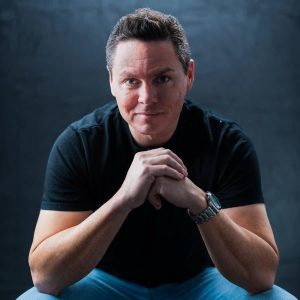The human brain and body are intricate systems that have been fine-tuned over millions of years to prioritize survival. One of the ways they achieve this is by favoring the status quo, or what is familiar. This preference for familiarity is so potent that it can often override our conscious desires for change, making it challenging to break free from patterns of behavior or thought that may be detrimental to our well-being. This article will delve into the complex relationship between the brain, body, and anxiety and explore why change can be so difficult.
View this post on Instagram
A post shared by Keith Crossley – Business Coach and Author of Immune to Suffering
Table of Contents
ToggleThe role of the status quo bias
At the core of our resistance to change is a cognitive bias known as the status quo bias. This bias is a preference for the current state of affairs. The more familiar we are with a situation, the more we tend to prefer it, even if it’s not in our best interest. This bias is not confined to our decision-making processes; it also affects our emotional states and physiological responses.
For instance, if you’re accustomed to a constant state of anxiety, your body has adapted to function under these conditions. Your brain has learned to anticipate and prepare for the stressors that trigger your anxiety, and your body has developed a physiological response to cope with it. This state of anxiety has become your body’s status quo, and any deviation from it can feel threatening.
Uncertainty and its link to fear
The status quo bias is closely tied to our fear of uncertainty. Uncertainty is inherently unpredictable, and our brains are wired to perceive unpredictability as a potential threat. This is why stepping out of our comfort zone and into the unknown can feel so daunting. Even if we consciously recognize that our current state of anxiety is harmful and desire to change it, the prospect of venturing into uncharted territory can be even more frightening.
Our brain and body often resist when we attempt to change our status quo. They send out alarm signals, warning us that we’re venturing into unfamiliar territory. This resistance can manifest as heightened anxiety, making it even more challenging to break free from our current state.
The paradox of change
This brings us to the paradox of change. On one hand, we may genuinely desire to change, to free ourselves from the shackles of anxiety and embrace a happier, more peaceful state of being. On the other hand, in their quest for familiarity and predictability, our brain and body resist this change. They cling to the known, even if the known is a state of constant anxiety.
This paradox can make change feel like an uphill battle. We may find ourselves caught in a cycle of wanting to change, attempting to change, experiencing resistance, and then reverting back to our old patterns. This cycle can be disheartening and frustrating, but understanding the underlying mechanisms can give us the tools to navigate it more effectively.
Conclusion: Embracing change with compassion and patience
The brain and body’s preference for the status quo is a powerful force that can make change challenging. However, understanding this preference and the fear of uncertainty that underlies it can empower us to approach change with greater compassion and patience. It’s important to remember that resistance to change is a natural response, not a personal failing. We can gradually shift our status quo and create lasting change with persistence, patience, and understanding.
In the end, the journey towards change is not a straight path but a winding road filled with ups and downs. It’s a process of learning and unlearning, of stepping forward and sometimes stepping back. But with each step, we move closer to a state of being that aligns with our deepest desires and highest potential.
Frequently Asked Questions
Q. What is the status quo bias?
The status quo bias is a cognitive bias that favors the current state of affairs. The more familiar we are with a situation, the more we tend to prefer it, even if it’s not in our best interest. This bias affects our decision-making processes, emotional states, and physiological responses.
Q. How does the status quo bias relate to anxiety?
If you’re accustomed to a constant state of anxiety, your body has adapted to function under these conditions. Your brain has learned to anticipate and prepare for the stressors that trigger your anxiety, and your body has developed a physiological response to cope with it. This state of anxiety has become your body’s status quo, and any deviation from it can feel threatening.
Q. What is the link between the status quo bias and fear of uncertainty?
The status quo bias is closely tied to our fear of uncertainty. Uncertainty is inherently unpredictable, and our brains are wired to perceive unpredictability as a potential threat. This is why stepping out of our comfort zone and into the unknown can feel daunting.
Q. What is the paradox of change?
The paradox of change refers to the conflict between our desire to change and our brain and body’s resistance. We may genuinely desire to change, to free ourselves from the shackles of anxiety, and to embrace a happier, more peaceful state of being. However, in their quest for familiarity and predictability, our brain and body resist this change.
Q. How can we effectively navigate change?
Understanding the brain and body’s preference for the status quo and the fear of uncertainty that underlies it can empower us to approach change with greater compassion and patience. It’s important to remember that resistance to change is a natural response, not a personal failing. We can gradually shift our status quo and create lasting change with persistence, patience, and understanding.
















